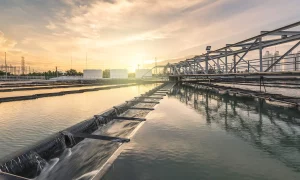Making Water a Part of Economic Development: The Economic Benefits of Improved Water Management and Services
Please, help us understand your needs better
Are you reading this publication as part of a course, for work or for your own knowledge? Let us know by emailing: newsletter@siwi.org
Key lessons learned
- Improved water supply and sanitation and improved water resources management boost countries’ economic growth and contributes greatly to poverty eradication.
- The economic benefits of improved water supply and – in particular – sanitation far outweigh the investment costs, surprisingly good news for Northern and Southern decision makers who often view investments as mere costs.
- National economies are more resilient to rainfall variability, and economic growth is boosted when water storage capacity is improved.
- Investing in water is good business – improved water resources management and improved water supply and sanitation contributes significantly to increased production and productivity within economic sectors.
- The overall public and private investment needs for improved water supply and sanitation and improved water resources management are considerable. However, at the country level, meeting such investment challenges is highly feasible and within reach of most nations.





